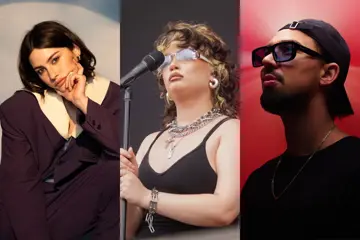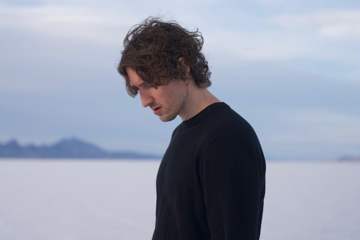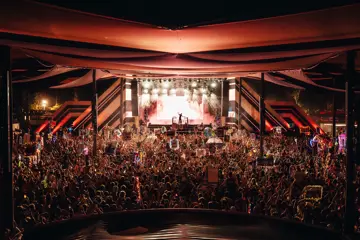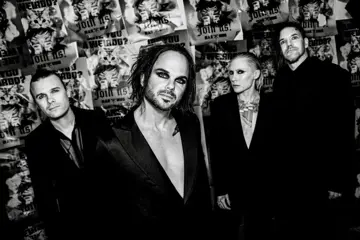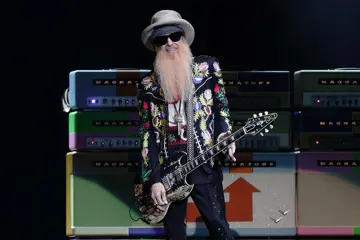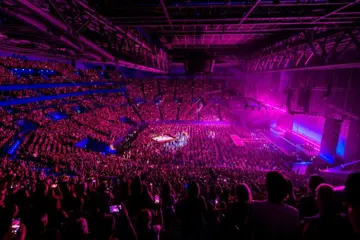
As we settle into our seats, there's an air of fear mixed with exhilaration since many among us have looked forward to The Australian Ballet's premiere performance of John Neumeier's Nijinsky since the company's 2016 program was unveiled. And from the moment the solo pianist plays his first note on the grand piano on stage, the atmosphere inside State Theatre bristles with curiosity.
Our opening Swiss ballroom scene is set so unusually - dancers as actors in conversation (at times you can actually make out what they're saying) - that there's an audible murmur throughout the audience as theatre buddies exchange levels of approval/disapproval. Gaining immediate unanimous approval is Guest Repetiteur Alexandre Riabko (Principal borrowed from The Hamburg Ballet, Nijinsky already part of his repertoire) - who shares Kiev, as his place of birth, with Nijinsky. Riabko's ease of movement (based on Nijinsky's own groundbreaking choreography and definitely not lifted straight from classical ballet's usual movement vocabulary) is notable and the emotional sensitivity he brings to Nijinsky's constantly fragile, disoriented mental state will have you battling the tear-duct floodgates.
We're so engaged in the hypnotic choreography, patterning and swirling colours (particularly in Neumeier's costume design, the use of colour is mesmerising), that the first scenery change goes completely unnoticed. Where did the piano go? The sounds of Orchestra Victoria swell through the auditorium and we enter a visualisation of Nijinsky's "thoughts, memories and hallucinations". He meets family members and his most famous roles (Harlequin, The Poet from Les Sylphides, The Spirit Of The Rose and The Golden Slave) along the way. Neumeier's pas des deux explorations - especially when featuring Nijinsky and Diaghilev (Adam Bull) - present fresh, unexpected combinations and immaculate lines. During ensemble work, some of the more complex, unfamiliar port de bras present uniformity difficulties.
Come Part Two and all completely descends into the chaos of insanity. There's straightjackets, military jackets and the tragic figure of Petrouschka (impressively brought to life by Brett Simon) leaning against the bottom of the stage right proscenium arch, sinking in slow motion until he's a crumpled heap on the side of the stage. Francois-Eloi Lavingnac shines as Nijinsky's brother Stanslav, "marked from childhood by signs of madness" could easily be overdone but this promising coryphee matches astounding technical virtuosity with haunted melancholy in his portrayal. And dragging focus away from Riabko isn't easy. The downfall of our God Of The Dance is difficult to watch. The collage score sourced from a collection of great composers accompanies frenzied choreography until Nijinsky's final descent.
Don't miss a beat with our FREE daily newsletter
The programme illuminates that before Nijinsky's last dance he recited: "Now I will dance the war... The war which you did not prevent and are also responsible for". This goes some way to explaining the military presence in this ballet's second half, but Neumeier's Nijinsky demands former knowledge about its subject's life. His Nijinsky also doesn't stick to fact or chronology; it's entirely abstract in setting, premise and choreography. There are a few technical fumbles and lapses in execution from the dancers this evening and Part Two is a tad long-winded, but John Neumeier's Nijinsky is an extraordinary theatrical experience befitting a dancer whose influence on this artform is immeasurable.
The Australian Ballet presents Nijinsky at the Arts Centre Melbourne to 17 Sep, Adelaide Festival Centre 14 — 19 Oct, and Sydney Opera House 11 — 28 Nov

